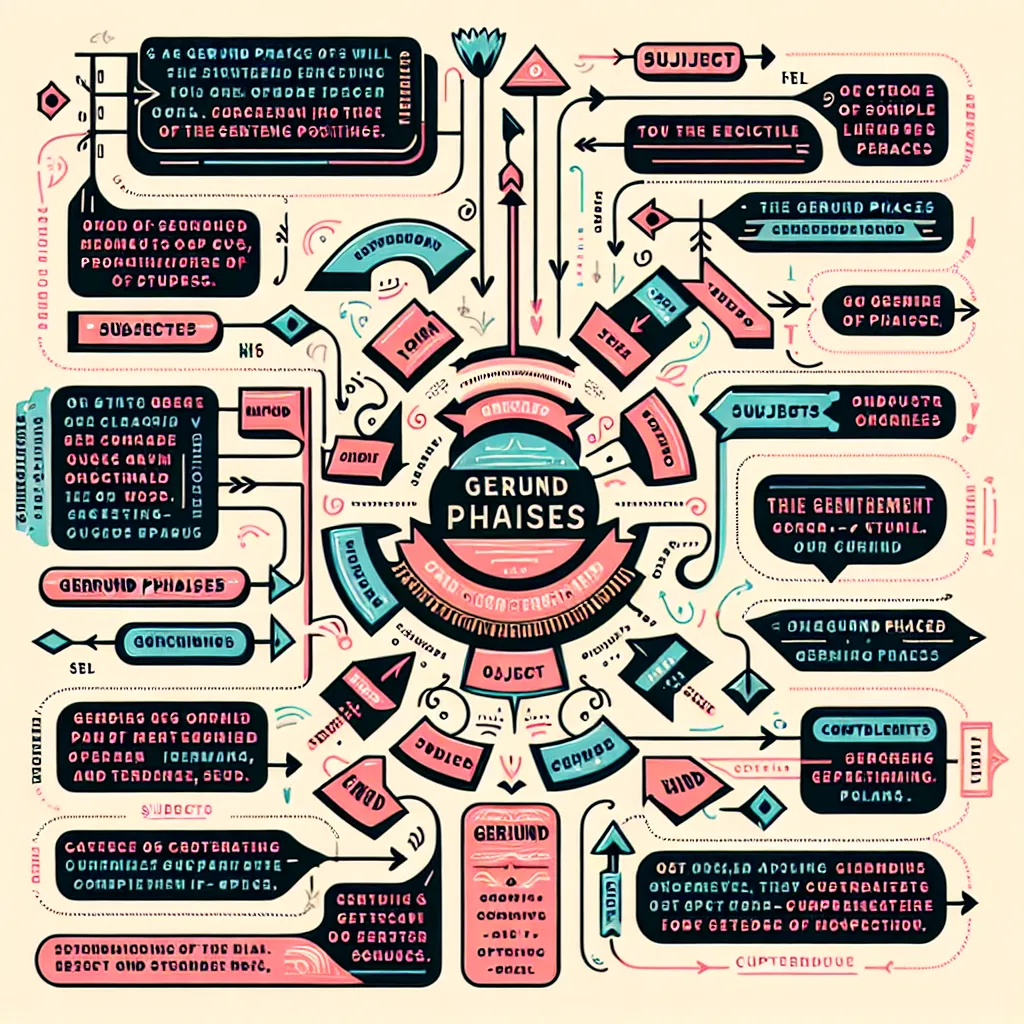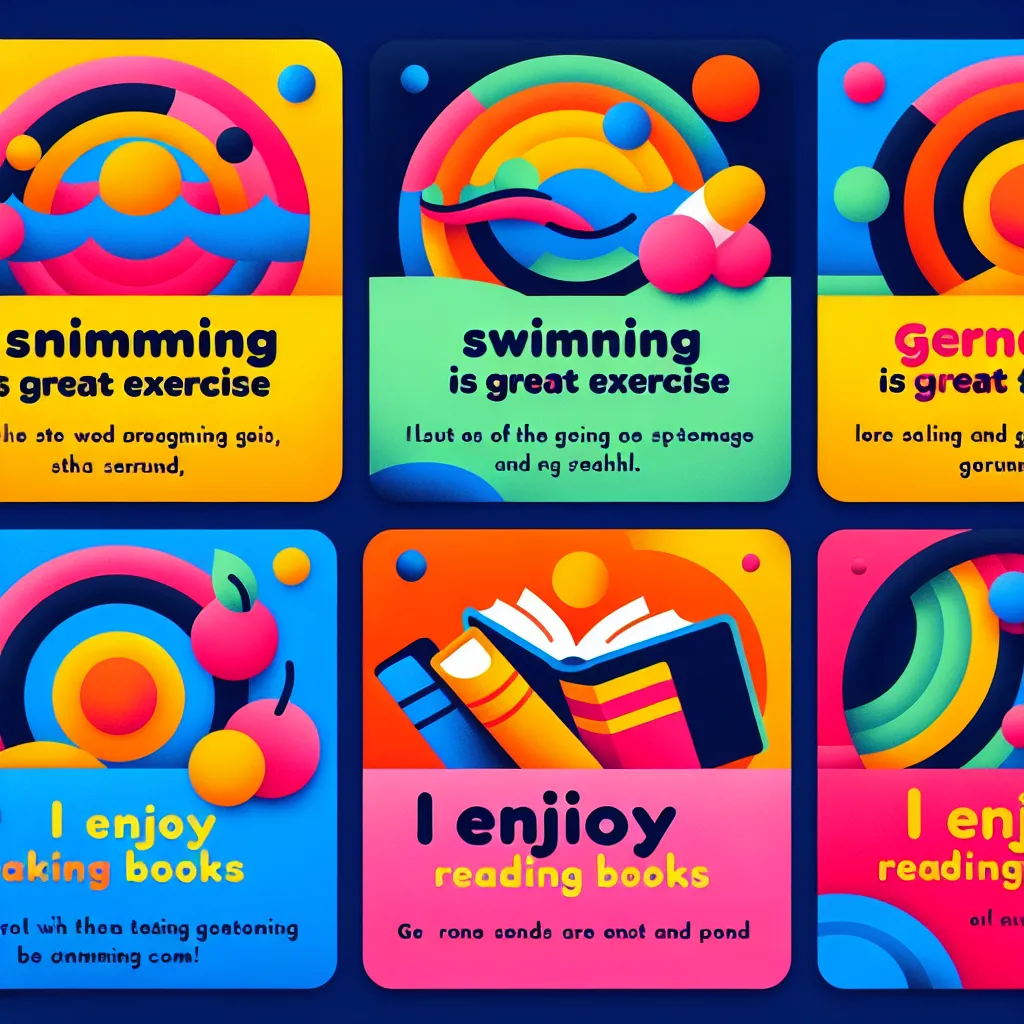Gerund phrases are an essential component of English grammar, allowing for more nuanced and sophisticated expression. Whether you’re preparing for the IELTS exam or simply looking to enhance your English skills, mastering gerund phrases can significantly improve your language proficiency. This guide will provide you with effective strategies and practical tips to help you confidently use gerund phrases in your English communication.
Understanding Gerund Phrases
Gerund phrases are verbal phrases that function as nouns in a sentence. They consist of a gerund (a verb ending in -ing) and any modifiers or objects associated with it. These phrases can serve various grammatical roles, including subject, object, or complement.
 Gerund Phrases in English
Gerund Phrases in English
Why Are Gerund Phrases Important?
- Versatility: Gerund phrases can be used in multiple ways within a sentence, offering flexibility in expression.
- Conciseness: They allow you to express complex ideas more succinctly.
- Fluency: Proper use of gerund phrases can make your English sound more natural and fluent.
- IELTS Success: Understanding gerund phrases is crucial for achieving high scores in the IELTS exam, particularly in the Writing and Speaking sections.
Strategies for Mastering Gerund Phrases
1. Identify Common Gerund Phrase Structures
To use gerund phrases effectively, familiarize yourself with their common structures:
- As a subject: “Reading books is my favorite pastime.”
- As an object: “She enjoys swimming in the ocean.”
- After prepositions: “He’s interested in learning new languages.”
- As a complement: “Her hobby is collecting stamps.”
2. Practice with Verb + Gerund Combinations
Some verbs are commonly followed by gerunds. Memorize and practice these combinations:
- Enjoy, avoid, consider, finish, mind, suggest, recommend, etc.
Example: “I suggest trying the local cuisine when you visit Italy.”
3. Distinguish Between Gerunds and Infinitives
While some verbs can be followed by both gerunds and infinitives, others require one or the other. Learn the differences:
- “I like swimming” (gerund) vs. “I want to swim” (infinitive)
- “She stopped smoking” (gerund) vs. “She stopped to smoke” (infinitive with different meaning)
4. Use Gerund Phrases in Various Sentence Positions
Experiment with placing gerund phrases in different parts of a sentence to enhance your flexibility:
- Beginning: “Traveling abroad broadens one’s perspective.”
- Middle: “The team, after discussing the project, decided to proceed.”
- End: “The company increased profits by reducing expenses.”
5. Incorporate Gerund Phrases in Your Writing
When practicing writing, consciously include gerund phrases to make your text more sophisticated:
- Instead of: “I like to cook Italian food.”
- Try: “Cooking Italian food is one of my greatest pleasures.”
 Gerund Writing Practice
Gerund Writing Practice
6. Listen for Gerund Phrases in Native Speech
Pay attention to how native speakers use gerund phrases in conversations, podcasts, or movies. Note down interesting examples and try to incorporate them into your own speech.
Common Mistakes to Avoid
-
Using an infinitive instead of a gerund after certain verbs:
- Incorrect: “I enjoy to read.”
- Correct: “I enjoy reading.”
-
Forgetting to use possessive adjectives before gerunds when necessary:
- Incorrect: “I appreciate you helping me.”
- Correct: “I appreciate your helping me.”
-
Confusing gerunds with present participles:
- Gerund (noun function): “Swimming is great exercise.”
- Present participle (verb function): “He is swimming in the pool.”
Practical Exercises to Improve Your Skills
- Sentence Transformation: Convert sentences using infinitives to sentences using gerund phrases.
- Gap-filling Exercises: Complete sentences with the correct form of the verb (gerund or infinitive).
- Writing Practice: Compose short paragraphs incorporating multiple gerund phrases.
- Speaking Drills: Describe your hobbies or daily routines using gerund phrases.
Next Steps
Once you’ve mastered the basics of gerund phrases, consider these advanced steps:
- Explore complex gerund constructions, such as perfect gerunds (e.g., “having finished the project”).
- Study the nuanced differences in meaning when a verb can be followed by both a gerund and an infinitive.
- Analyze academic texts to observe how gerund phrases are used in formal writing.
For more advanced grammar topics, you might find our guide on mastering the use of infinitive clauses helpful. Additionally, to improve your overall English skills, check out our article on how to develop a habit of thinking in English.
Mastering the use of gerund phrases is a significant step towards advanced English proficiency. By consistently practicing and incorporating these structures into your daily language use, you’ll notice a marked improvement in your English fluency and expression. Remember, language learning is a journey, so be patient with yourself and celebrate your progress along the way. Keep practicing, and soon you’ll be using gerund phrases with confidence and ease!




